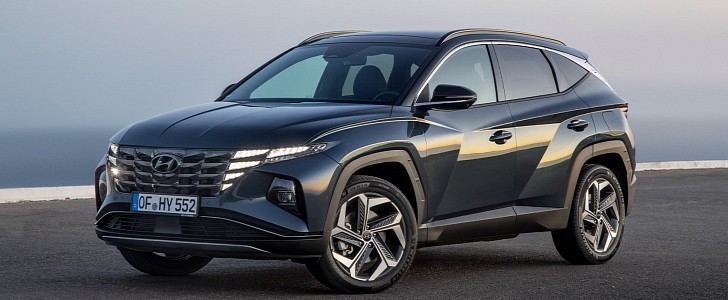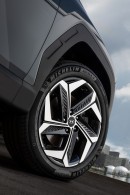Diesel used to be popular in the United Kingdom and the rest of Europe for many reasons. That was until Volkswagen made a mess of compression-ignition technology with the Dieselgate emissions scandal, which can trace its roots back to 1998 and a Swedish exhaust emission laboratory.
Following this irreversible debacle, an increasing number of automakers announced that diesel is no longer a priority. If memory serves me well, the head honcho of Volvo Cars is the first high-ranking official in the automotive industry who decided against diesel as far back as May 2017.
The latest automaker to join the club is Hyundai, according to Korea JoongAng Daily, which cites local reports and industry sources. Hyundai has reportedly “suspended development of new diesel engines from the latter half of last year,” choosing instead to improve existing diesel mills.
Looking at the bigger picture, I can’t blame these guys because ICE bans have been announced as early as 2025. It would be foolish for an automaker to invest money into an obsolete technology instead of battery-electric vehicles and fuel-cell vehicles. That is exactly what Hyundai intends to do with the Ioniq sub-brand of EVs and the Nexo hydrogen-fueled crossover.
Genesis and Kia are likely to follow the South Korean automaker’s example because Genesis is Hyundai’s luxury division, and Kia is pretty much its mirror image under a different name. According to the cited publication, Hyundai aims to account for eight to 10 percent of the global fully-electric market by 2040. It’s too soon to say if that estimate is on the wishful thinking side of things, but still, nothing is technically impossible by 2040.
At the time of writing, the South Korean automaker doesn’t offer a single diesel in the United States due to an obvious lack of demand. As for the European Union, the Tucson compact crossover is offered with a 1.6-liter CRDi Smartstream engine complemented by a 48-volt electrical system.
The latest automaker to join the club is Hyundai, according to Korea JoongAng Daily, which cites local reports and industry sources. Hyundai has reportedly “suspended development of new diesel engines from the latter half of last year,” choosing instead to improve existing diesel mills.
Looking at the bigger picture, I can’t blame these guys because ICE bans have been announced as early as 2025. It would be foolish for an automaker to invest money into an obsolete technology instead of battery-electric vehicles and fuel-cell vehicles. That is exactly what Hyundai intends to do with the Ioniq sub-brand of EVs and the Nexo hydrogen-fueled crossover.
Genesis and Kia are likely to follow the South Korean automaker’s example because Genesis is Hyundai’s luxury division, and Kia is pretty much its mirror image under a different name. According to the cited publication, Hyundai aims to account for eight to 10 percent of the global fully-electric market by 2040. It’s too soon to say if that estimate is on the wishful thinking side of things, but still, nothing is technically impossible by 2040.
At the time of writing, the South Korean automaker doesn’t offer a single diesel in the United States due to an obvious lack of demand. As for the European Union, the Tucson compact crossover is offered with a 1.6-liter CRDi Smartstream engine complemented by a 48-volt electrical system.























